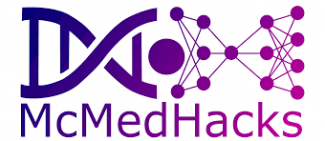July 3rd at 10:00-11:30 EDT
- Speaker: Dr. Christina Gillmann
Multi-modal Machine Learning for CT – From an example to Generality
In my talk I will present a current research project from Leipzig University where we aim to predict stroke lesions. When a stroke happens, parts of the brain might be permanently damaged resulting in potential disability. In the early stages of a stroke, the final lesion can not be determined properly. In the project, we aim to predict the final lesion of patients using a U-Net to provide enhanced therapies. During this project, we learned a lot about the obstacles that may occur when dealing with AI in medicine, which I will summarize and generalize for novel students in this area.
- Speaker: Dr. Christopher Deufel
Medical Imaging Analysis and Deep Learning Applications in Brachytherapy
This session will review machine learning and medical imaging analysis applications in brachytherapy. The presentation will begin with an overview of how radiation is used to treat cancer. Next, the session will describe a special type of radiotherapy called brachytherapy, where the radiation source is placed inside or near the cancerous target in order to maximize the dose to the cancer, while minimizing the dose to nearby healthy tissues. Finally, the presentation will review opportunities for machine learning and medical imaging analysis in the context of current and future state brachytherapy workflows.
Workshop
July 4th at 10:00-11:30 AM EDT
- Instructor: Dr. Farhad Maleki
3D image augmentation and its use case in semantic segmentation
Deep learning methods have shown great success in tackling challenging computer vision tasks in contexts where large-scale labeled datasets are available. However, in many domains such as medical imaging, often such large-scale datasets are not available. Therefore, techniques that help to increase the size and variability of data synthetically are of great importance when developing deep learning applications. We cover a pipeline for 3D image augmentation with a use-case in semantic segmentation in this talk.


